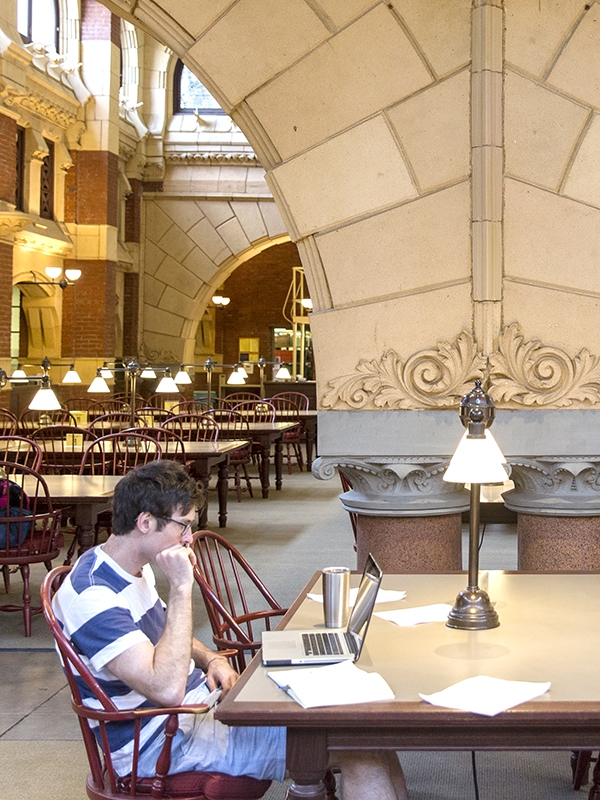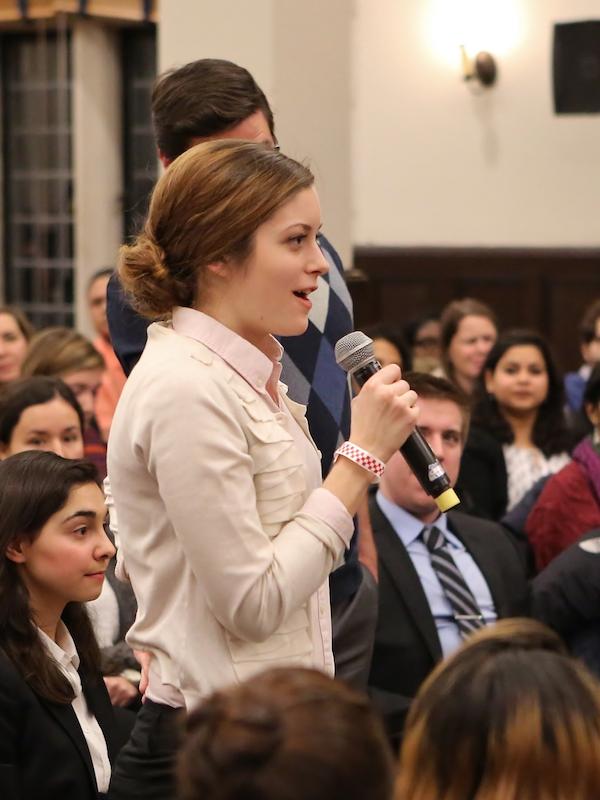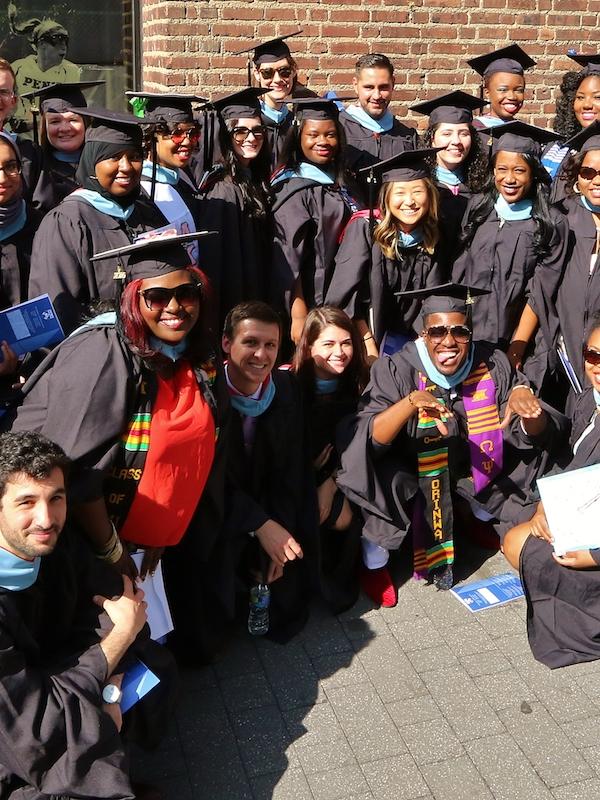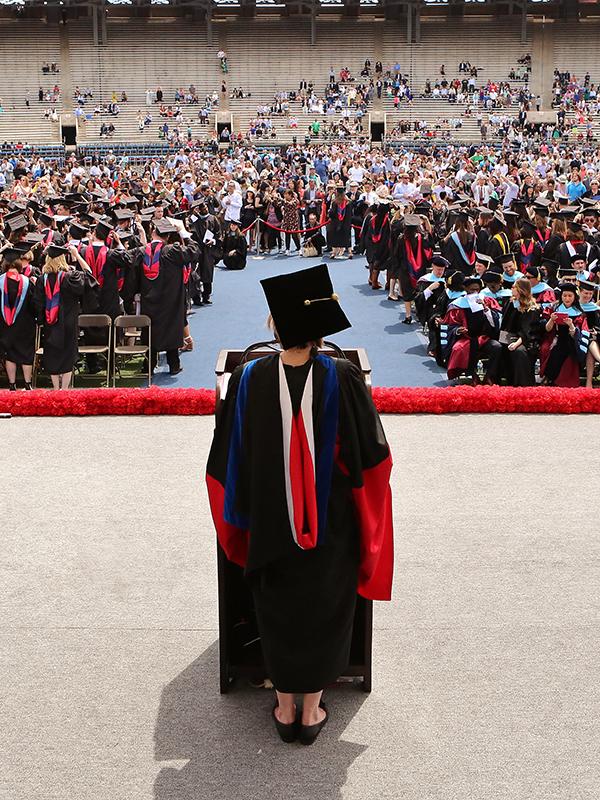Shaping the Vision of a University
by Lini S. Kadaba
When José Antonio Guzmán, GRD’13, left Santiago, Chile, in 2010 to pursue studies in the United States, he wanted to learn best practices of American universities and bring them back to the up-and-coming Universidad de los Andes (UANDES), where he worked as vice president of academic affairs. He set his sights on Penn GSE’s Executive Doctorate in Higher Education Management program after completing a master’s at Harvard University. Guzmán liked the Penn GSE program’s tight focus on data-driven decision making and pragmatic ideas.
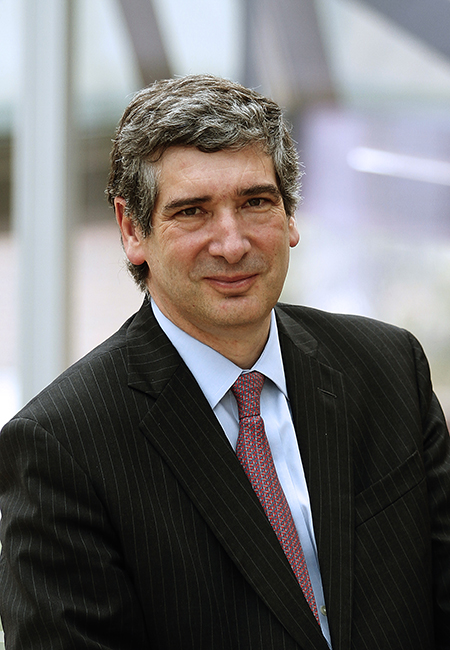
“Though I am very interested in research, I am more of a practitioner in many ways,” says the former lawyer who became president at the nonprofit, private UANDES soon after completing his Ed.D. “I wanted to learn how to run a university.”
Guzmán says the imprint of his time at Penn GSE is visible all around UANDES, home to approximately 8,700 undergraduate and 2,000 graduate students. He has implemented new ideas and reaffirmed other practices, recently earning a renewed contract for a second five-year term.
Based on his Penn GSE dissertation about strategies for fostering quality teaching at Chilean universities, Guzmán introduced teaching prizes and funding akin to research grants. “It’s about creating an environment where faculty members understand their work is appreciated by the rest of the university and valued by students,” he says.
“Things are changing very fast in terms of skill sets required for the jobs of the future. A strong general education prepares students with flexibility and the ability to meet change over time.”
Guzmán also expanded the curriculum of UANDES beyond its previous professional focus, increasing liberal arts classes and adding minors. “Things are changing very fast in terms of skill sets required for the jobs of the future,” he says. “A strong general education prepares students with flexibility and the ability to meet change over time.”
He also made student life a priority, funding programs such as sports and student organizations—typically scarce in Chilean colleges, according to Guzmán. “I think a very strong student experience outside the classroom is an important part of education,” he says.
In other areas, Guzmán’s Penn GSE experiences gave him confidence in the university’s existing structures. Like many institutions in the United States, the 128-acre UANDES has a planned campus in one location and a board of trustees that governs and appoints leadership. It is rare for Chilean universities to have a single campus, he says, and older institutions in the country have presidents and deans elected by the faculty.
“I wanted to have the argument to defend the way this university was organized,” he says. “During my time at Penn GSE, I reaffirmed my conviction that our campus and governance models are key features of UANDES.”
As he looks ahead, Guzmán’s focus is on nontraditional ways to deliver education (massive open online courses, for one) and expanding UANDES’s endowment. He has turned to his Penn GSE cohort for advice. “We’re in touch almost every day,” Guzmán says. “It gives you some perspective. You are not alone in addressing problems.”
This article originally appeared in the Spring 2019 issue of The Penn GSE Magazine.

